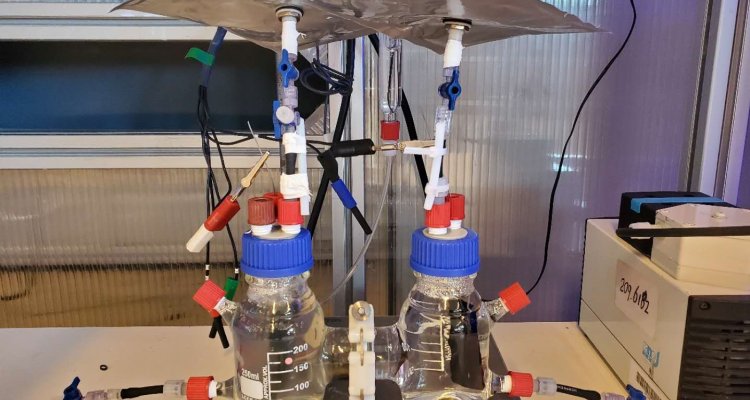
Project
Bioelectrochemcial system for mitigating sewer gas formation and sewer pipe corrosion
As an important part of urban infrastructure, the sewer system plays an important role in collecting and transporting wastewater. However, the generation of harmful gases in sewer aggravates global warming and sewer pipe corrosion. H2S and CH4 are the harmful sewer gases of most concern.
Current sewer gas control strategies rely primarily on the addition of chemical reagents (H2O2, KMnO4, nitrate, etc.). These strategies not only require capital and energy inputs but also are not sustainable.
Due to its potential to regulate microbial competition, bioelectrochemical systems (BES) are expected to be an alternative to achieve sewer gas control (Fig 1). Compared with current sewer gas control strategies, the operation of BES requires no addition of chemicals and is more sustainable.
Hence, the aim of this project is to employ BES to continuously steer biological processes within sewers to avoid hazards (explosive and/or toxic gas emissions, greenhouse gas emission) and economic losses (sewer pipe corrosion).
Research challenge
This project focuses on using BES to regulate microbial competition to control sewer gas. The challenge is that this strategy has not yet been proposed or studied to author’s best knowledge. Therefore, scientific feasibility of this strategy will be demonstrated first and then proceed with engineering research. This project will be divided into four sections.
- The feasibility of using BES for sewer gas control by regulating the competition between ARB, SRB and MA will be demonstrated.
- The BES sewer performance will be optimized by investigating the effect of hydraulics, and sewer sediment and biofilm.
- Technical solutions for the installation of BES reactors in the sewer system will be developed.
- The long-term performance of BES on inhibiting the formation of sewer gas in reallife sewer system will be studied.